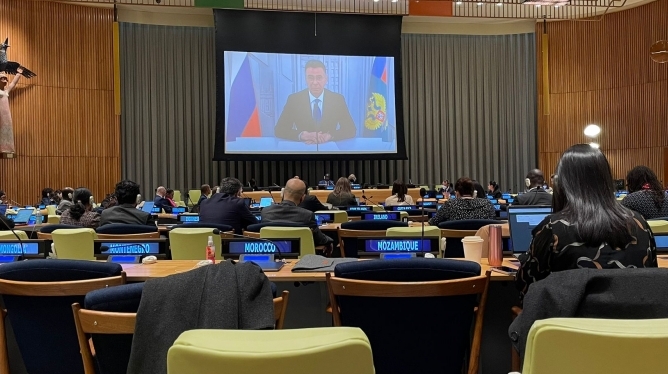Statement by Deputy Foreign Minister Alexander Pankin at the ECOSOC Forum on Financing for Development
Dear colleagues,
Every year we gather at this Forum to adopt outcome documents full of great promises. This year will be no exception. It will not be an exception also because following the Forum the situation will not change significantly.
Meanwhile, it is time to admit the obvious: Sustainable Development Goals are unattainable. Optimism about their success was based on two premises – continued economic growth and deepened globalization. And they cannot be taken for granted, as recent experience has shown.
Today, I would like to address developing countries.
The reason for current failures in economic development is injustice of the existing international economic order, which is perpetuated by the unwillingness of developed countries to revise the present financial architecture that infringes rights and legitimate interests of the developing world.
Places allocated for developing States in global supply chains damage their chances for moving up to a new level of development. Existing export‑oriented economic models make the well-being of entire regions directly dependent on growth rates in developed economies. Besides, according to the IMF, in the long run primary commodity prices fall relative to those of manufactured goods produced by developed countries.
Financial recipes proposed every year by leaders of the developed world have stopped to work. Efforts to mobilize domestic resources are undermined by the lack of resolute action to counter base erosion and illicit financial flows. Instead, we see, for example, attempts of one particular country to cynically force others to forgo their own taxation schemes for multinational IT companies – a potentially significant source of public revenue.
Developing countries are also encouraged to continue borrowing on international capital markets to increase budgetary capacities. But now, in almost half of Sub-Saharan African countries, over 25% of government revenues already go to service their foreign debts. 54 States worldwide are in debt distress and have to abandon their social obligations.
And for developed countries fifty years were not enough to get anywhere near fulfilling their aid commitments. The COVID-19 pandemic has not spurred them either. As a result, against the background of unprecedented profits of leading pharmaceutical companies, the level of vaccination, for example, in African countries still does not exceed 11% of the adult population. Speaking about failures to fulfil obligations, we mean USD 200 bln of grant support which were not received by the developing world only last year.
Current trends are rooted in the past. But the reason they still persist is the reluctance of certain countries to renounce even part of their advantages. It is evident that without revision of the existing global division of labour, rapid industrialization, diversification of economies and elimination of commodity dependence, it is impossible to ensure accelerated sustainable development.
Today, Russia is facing unprecedented sanction pressure. It is unfair neither in form nor in substance, as it is based on lies and hypocrisy. We call to join efforts to build a more equitable economic world order!
